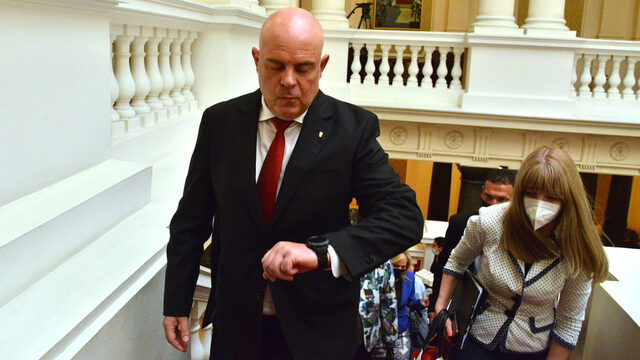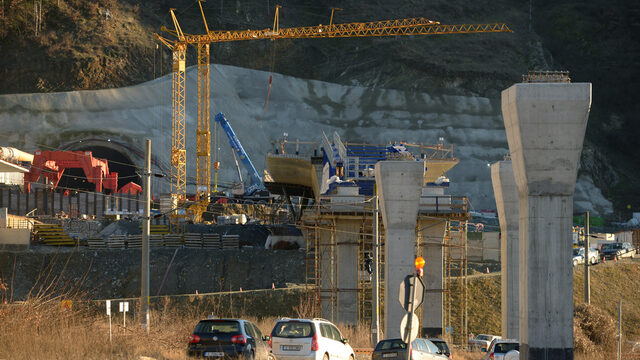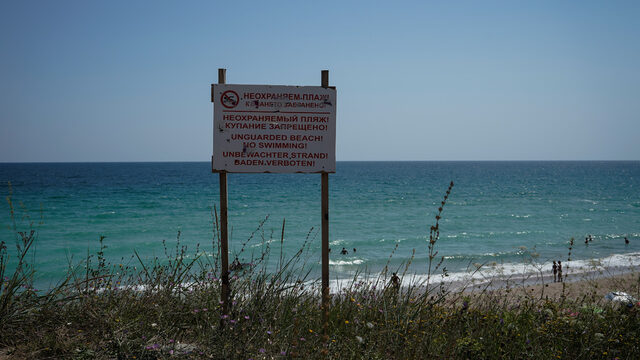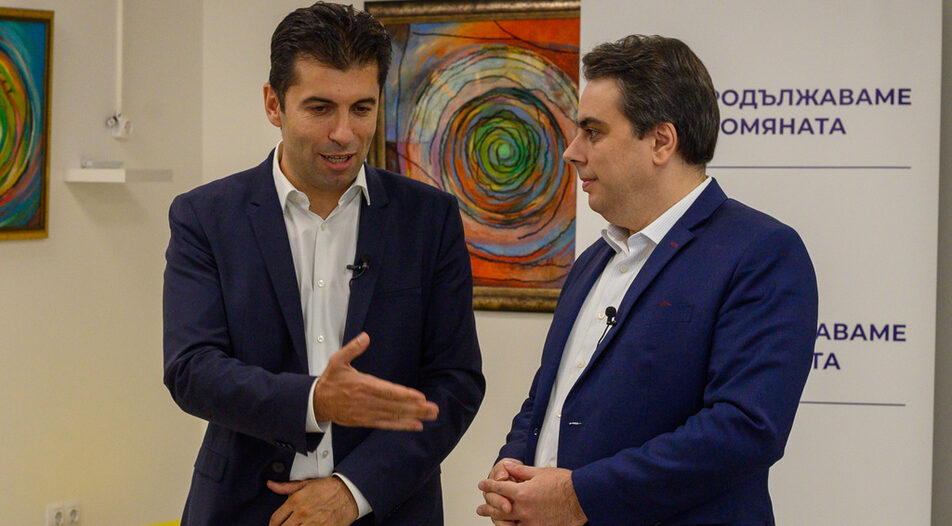90 hours, or almost four full days - this is how long the 18 thematic discussions led by 14 November Parliamentary vote winner We Continue the Change (WCC), lasted. Spread over five days, the discussions on topics ranging from internal security, foreign relations and healthcare through to energy, justice reform and culture were livestreamed on Facebook by the four parties that look set to finally form a reformist coalition - WCC, BSP, TISP and Democratic Bulgaria (DemBG).
While the working groups cleared up some of the issues that the future cabinet ought to focus on, there are still crucial - and difficult - decisions to be made before a government gets up and running. The conversation ended with a promise of further talks between the leaders of the four parties in which a final understanding ought to be reached, especially on the topic of distribution of posts. "We have at least another week of work ahead of us," BSP chairperson-in-resignation Kornelia Ninova told BNT.
Despite having a whole month to convene the 47th National Assembly before 20 December, President Rumen Radev pledged to - and is about to - convene it as early as 3 December. The reason is simple - lawmakers have important tasks ahead of them, including the discussion and adoption of the 2022 state budget.
This means that any attempt to form a government will take place after 6 December. Names of ministers, however, are not yet openly discussed, although some seem certain - notably Kiril Petkov for Prime Minister and Assen Vassilev for Finance Minister. This could prove to be the last but most significant stumbling block for the future coalition. Even if a nominal understanding over key policy areas is reached, cadres can still make or break the negotiations.
With this in mind, what did parties discuss - and agree on - over these 90 intense hours?
Finance and Economy:
In 2022, there will be no changes to the main taxes, including plans for lower VAT rates for restaurants, books, and children's foods. Other changes that directly affect the finances of businesses and individuals were approved, however. Firstly, a pledge was made that the minimum wage should reach 700 BGN, compared to 650 BGN now (there is also an agreement that by the end of the 4-year term of the cabinet the minimum wage ought to be 50 percent of the average wage), and the maximum social security threshold of 3,000 BGN will reach at least 3,450 BGN. The so-called "Weekend tax" and tax on interest income from deposits will be abolished.
It is likely that 2022 will start without an enacted state budget because the current financial framework will have to be revised to reflect the changes in the new government. In addition, a mid-year update will be issued, incorporating the results of the other expert groups' analyses of the need for financing of various reforms and promised social payments. The parties have agreed that the 2022 budget will be planned with a deficit of between 3.5 - 4.5 percent of GDP.
Additional promises for eliminating red tape and corruption, creating incentives for starting companies and a focus on small business with high value-added products, as well as attracting new investors, were made.
Justice reform:
All parties agreed that, in order to curb corruption, there is an overriding need for widespread justice reform, starting with the urgent removal of Prosecutor General Ivan Geshev. This, however, is difficult to achieve without changes to the Constitution, and with the current political balance in Parliament, a constitutional majority - for any reform in the judiciary - will be impossible to gather. Thus, for the time being, the reform of the prosecutor's office can only start with a demand for the prosecutor general's resignation, although there are other ways he could be fired.

In the short term, the four parties agreed to eliminate the Specialized prosecution and court, whose work has been marred by allegations of abuses and pressure against opponents of the previous government. They also agreed to augment control over prosecutors' acts, lower court taxes and, in general, increase accessibility to justice, and reform the legal education system.
Social policy and Healthcare:
A key change here was the promise that the National Revenue Agency (NRA) and the General Labour Inspectorate (GLA) will be able not only to fine any employer who does not pay the taxes and social security on the basis of their employees' full salary by paying part of it under the table, but also the worker himself, as well as the company accountant.
Additionally, retirees will continue receiving higher salaries after the expiration of the 120 BGN bonuses on 1 January 2022 by having their salaries indexed upwards with state budget money. Companies will continue receiving Covid-19 support funds under the 60/40 rule, at least until March. Proposals to have free textbooks for all students and no fees for kindergartens and nurseries were also adopted.
As for the health sector, the parties agreed to restructure emergency care next year, reevaluate the doctors' and nurses' payment scheme, put registration of hospitals as commercial companies on hold, and introduce new ways for young doctors to specialize. Additionally, parties promised to ban doctors from working as managers in two positions - for example, as a head of a clinic and a head of a department or manager of a private center, which is a common practice. The electronic patient record and the national information system of the sector ought to be up and running by the end of 2022.
Energy sector:
The four potential coalition partners agreed on the most delicate topics - the continuous development of Bulgarian nuclear capacity, but without specifying anything about the Belene Nuclear Power Plant (NPP) project, and the future of the Maritsa East complex by preserving coal for as long as possible. However, the production of electricity from renewable sources will also be supported. Among short-term measures, the priority will be to continue supporting households and businesses because of electricity price increases, with up to 200 kWh of free energy per month.
Transport and Regional Development:
Parties agreed that measures are needed to improve road safety. There is to be a safety audit of the main infrastructure arteries and only one institution will be responsible for laying out road marking. The cabinet will explore the possibility of transferring the toll system back to state control and there is likely to be a review of its scope and the prices.

Major infrastructure projects such as the Struma, Hemus and Black Sea highways, as well as the Vidin-Sofia-Kulata main road, ought to be completed as soon as possible. There should also be an increase in the number of driving lessons future drivers have to take. The big state-owned mastodons Bulgarian railways (BDZ) and Bulgarian Post ought to be rescued.
Discussions in the Regional Development Group have prioritised the water and sanitation sector, in particular investment in the replacement of water mains and the construction of drinking water treatment plants. An audit of the water and sewerage holding will also be carried out. The country's dams will be reallocated between different departments based on what they are used for. They will also undergo full passportization. Financial resources will also be made available for river correction and river bank erosion.
Ecology and tourism:
The first job of the new environmental authorities will be to respond to the 16 active EU sanction procedures against Bulgaria on environmental topics. Among the proposals are the finalization of the process of designating Natura 2000 sites, the development of policies for alternative and environmentally friendly tourism, as well as a camping strategy. The national air quality monitoring system will be expanded.
After the waste-burning scandal of 2019-2020, a new system of waste management, including traceability of cross-border waste shipments. ought to be implemented. Overall priorities in the waste sector include closing the 43 unreclaimed landfills, respectively reducing landfilling and increasing recycling, and the introduction of a new way of calculating the garbage tax. The medium-term objectives in the water sector are to ensure the treatment of both drinking water and wastewater, the construction of sewers and the reduction of water losses.
When it comes to the next level, the parties discussed the possibility of having a deputy prime minister responsible for climate change action, and whether to give the managing authority for the Environment Operational Programme, which is now under the Environmental Ministry, an independent status, something that TISP opposed.
In the tourism sector, a guarantee fund for tour operators will be created as an alternative to the compulsory tour operator's liability insurance, which covers payments to customers in the event of bankruptcy. The parties also agreed that a system of electronic visa issuing for non-EU tourists will be introduced. The issue is to be discussed with the Foreign Ministry.
Parties also agreed to extend the 9 percent VAT rate for restaurants, which currently applies until the end of 2021.

The management of the beaches proved to be a conflict issue. DemBG proposed that giving out beaches under concession ought to be abolished, while BSP offered that the concessions should only be given to "interested parties" - investors in the resorts and local seaside municipalities. TISP also suggested regulation of shared economy lettings such as apartments and properties rented through AirBnB or Booking.
Agriculture:
The focus in the sectorial discussions fell on Bulgarian production and support for small and medium producers, especially in sensitive sectors such as livestock, fruit and vegetable production and beekeeping. WCC proposed the creation of six gathering markets spread around the country that will be used by foreign merchants importing food and agricultural products, as well as by Bulgarian farmers selling to big supermarket chains.
One of the main differences that emerged during the discussion was whether there should be caps on subsidies received in the sector to stop the concentration of resources in grain producers. Ideas also emerged for changes in land legislation, a possible law on land consolidation and industry associations, the creation of an electronic land registry, a reduction in VAT on foods from the so-called small consumer basket, which include bread, milk, etc.. Most of these proposals will be discussed further down the road.
Education and e-governance:
Quality must play an important role in education funding; students should return to school as soon as possible, and curricula must become more practical and skills-oriented. These were the main takeaways from the negotiations, but while the goals are clear, the methods of reaching them are not. What is certain, however, is that there will be a new ministry that will take over the entire construction of an integrated e-government and digitization, and replace ID cards with ones containing a microchip and an embedded electronic signature. It will carry out a full-blown digitization with the goal of catching up in a year with what has been neglected over the past two decades, and hire project managers to oversee the process.
Foreign policy:
The two most contentious topics were clear from the start: N. Macedonia and Russia. The parties, however, apparently sought common ground, as neither of the two topics sparked a heated debate - despite somewhat loaded exchanges between the ideologically opposed DemBG and BSP. On the topic of the start of EU negotiations by N. Macedonia, which is closely watched by Sofia's EuroAtlantic partners, the future coalition confirmed its position that it wants its neighbor to start fulfilling the conditions set out in the declaration from three Parliaments ago. On the topic of relations with Russia, it was decided to state that Bulgaria would work to restore ties with Moscow within the general EU policy framework and not bilaterally.
90 hours, or almost four full days - this is how long the 18 thematic discussions led by 14 November Parliamentary vote winner We Continue the Change (WCC), lasted. Spread over five days, the discussions on topics ranging from internal security, foreign relations and healthcare through to energy, justice reform and culture were livestreamed on Facebook by the four parties that look set to finally form a reformist coalition - WCC, BSP, TISP and Democratic Bulgaria (DemBG).
While the working groups cleared up some of the issues that the future cabinet ought to focus on, there are still crucial - and difficult - decisions to be made before a government gets up and running. The conversation ended with a promise of further talks between the leaders of the four parties in which a final understanding ought to be reached, especially on the topic of distribution of posts. "We have at least another week of work ahead of us," BSP chairperson-in-resignation Kornelia Ninova told BNT.












